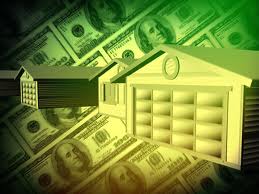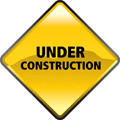 Investing in income producing property can be the single-most rewarding aspect of getting into real estate. Yet, it also comes with some significant responsibilities including mortgages, maintenance and property taxes. In some cases, annual property taxes can be astronomical for high dollar value properties and regions where the housing market is popular. Additionally, there are some regions where property tax assessments are not handled well, leaving real estate investors and home owners paying far more than the properties are actually worth.
Investing in income producing property can be the single-most rewarding aspect of getting into real estate. Yet, it also comes with some significant responsibilities including mortgages, maintenance and property taxes. In some cases, annual property taxes can be astronomical for high dollar value properties and regions where the housing market is popular. Additionally, there are some regions where property tax assessments are not handled well, leaving real estate investors and home owners paying far more than the properties are actually worth.
The good news is that there are some ways to reduce your property tax assessment significantly, to offset the costs of ownership. Learn how to deal with property tax assessments the smart way, and reduce their impact on your bottom line.
Avoid Outside Property Enhancements
When property tax assessors start their inspections, generally in the spring and summer months, they are given some basic guidelines to use. These generally include things that are focused on the outward appearance and structure of properties. In some cases, tax assessors will merely drive by properties and note any changes, such as home upgrades, additions, swimming pools and outlying buildings and improvements. If you must make a change, limit your home improvements to the interior of your property or the backyard.
Request Your Property and Tax Record
It’s a little known fact that any property owner can request copies of their tax records at any time of the year, even for multiple years. It’s important to do this periodically to check for any spikes in tax rates stemming from a poorly conducted assessment or misinformation. To obtain a copy of your property tax records, simply visit your local planning board and request them. You may have to pay a small administrative fee, but it’s worth it to be in the know.
Research Comparable Community Properties
As a property owner, you also have the right to know what other similar homes and lots are being assessed for taxes each year in your community. This can be researched by visiting your county public records office, sometimes available on the Internet. Look up properties that are comparable to your own home(s) by street address. If you see major differences in the amounts you are paying vs. other similar homes, it’s time to find out why.
Walk with the Property Assessor
Some home owners dread the tax assessor’s visit, while others embrace this as a chance to find out what they are looking for during a walk through. While the tax assessor has a specific set of guidelines for conducting a walk-through, particularly on a new or rehabbed property, you can walk along to learn more. It’s better to answer the tax assessor’s questions on the spot then leave things to conjecture, a factor that can help save money on your taxes.
Appeal any Discrepancies in Your Tax Bill
Each year, be sure to review your property tax bill closely to make sure there are no errors. Look for any problems in the measurements, location, property value, or structures of your home and lot. If your tax bill seems a lot higher than last year’s bill, there is likely a problem in the way it was assessed. Take the time to legally appeal your property tax bill and see if you can get it adjusted to the correct amount due.



